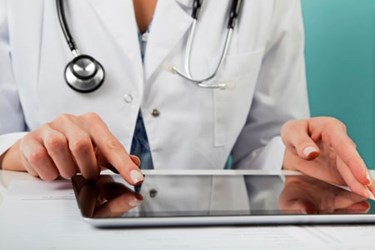One Quarter Of Patients Have Sent A Photo To Their Doctors For Diagnosis

By Christine Kern, contributing writer

Rise of smartphone use among patients provides new opportunities for healthcare.
Communication firm Ketchum has released the Ketchum mHealth Monitor, a study that highlights significant mobile health technology opportunities and identifies five different types of mHealth users. The study found one-quarter of all patients surveyed have texted or emailed a picture of a medical issue to their doctor, while 58 percent have shared information with a medical professional via the internet via smartphone, mobile app, or wearable devices.
The Ketchum study also found 47 percent of respondents use a mobile app to that track health, fitness or medicine, and 83 percent of those who use fitness apps use them at least once a week.
“The study points to a shift in people’s attitudes and readiness to use technology to manage their health,” explained Ketchum executive vice president and North American technology practice leader, Lisa Sullivan. “With U.S. smartphone adoption at 68 percent, now is the time for businesses that have a stake in the healthcare industry to push to develop approachable, intuitive mobile tech offerings that help the ever-increasing mobile user population improve something as personal and important as their health.
“In addition to improving patient experiences, mHealth technology also has the potential to help offset some of the rising costs of healthcare. Studies have shown correlations between leveraging mobile apps for patients with chronic diseases and cost savings, so the power of mHealth can truly be quantified in a way that makes sense for a company’s bottom line.”
The Ketchum study also identified five different types of mHealth users, including discerning digitals, swayable seekers, health tech hesitators, app-athetic agnostics, and low-tech lifters. The study “provides an important look into how both human and system behavior are rapidly changing and converging to connect health management,” explained health strategy director, Ketchum North America, Valerie Delva. “Though current attitudes toward using mobile technologies for health at the individual level are quite complex, the insights here also speak to broader trends in the health ecosystem and the potential for these technologies to help improve health outcomes.”
And Artificial Intelligence (A.I.) is also on the rise, according to the survey, with 39 percent of respondents saying they are comfortable using A.I. for diagnosis. As Health IT Outcomes reported, integrating machine learning has proving to have great benefits for remote monitoring.
“The transformational potential of machine learning in home healthcare is very promising,” said Jonathan Vallee, Director of AlayaLabs (the research and development arm of AlayaCare software). “With the help of We Care, we have the ability to improve patient outcomes by analyzing incoming patient vitals and referencing against patient data. This means we can predict negative health events — like hospital readmissions and ER visits — with tremendous accuracy.”
The WeCare research revealed machine learning can improve predictions by 11 percent while reducing over-diagnoses by 54 percent. When combined with Big Data, AI can also deliver risk scoring to inform and provide insight to clinicians of possible adverse events like falls, episodes, events, and emergency visits, as well as improve patient ability to remain at home longer.
